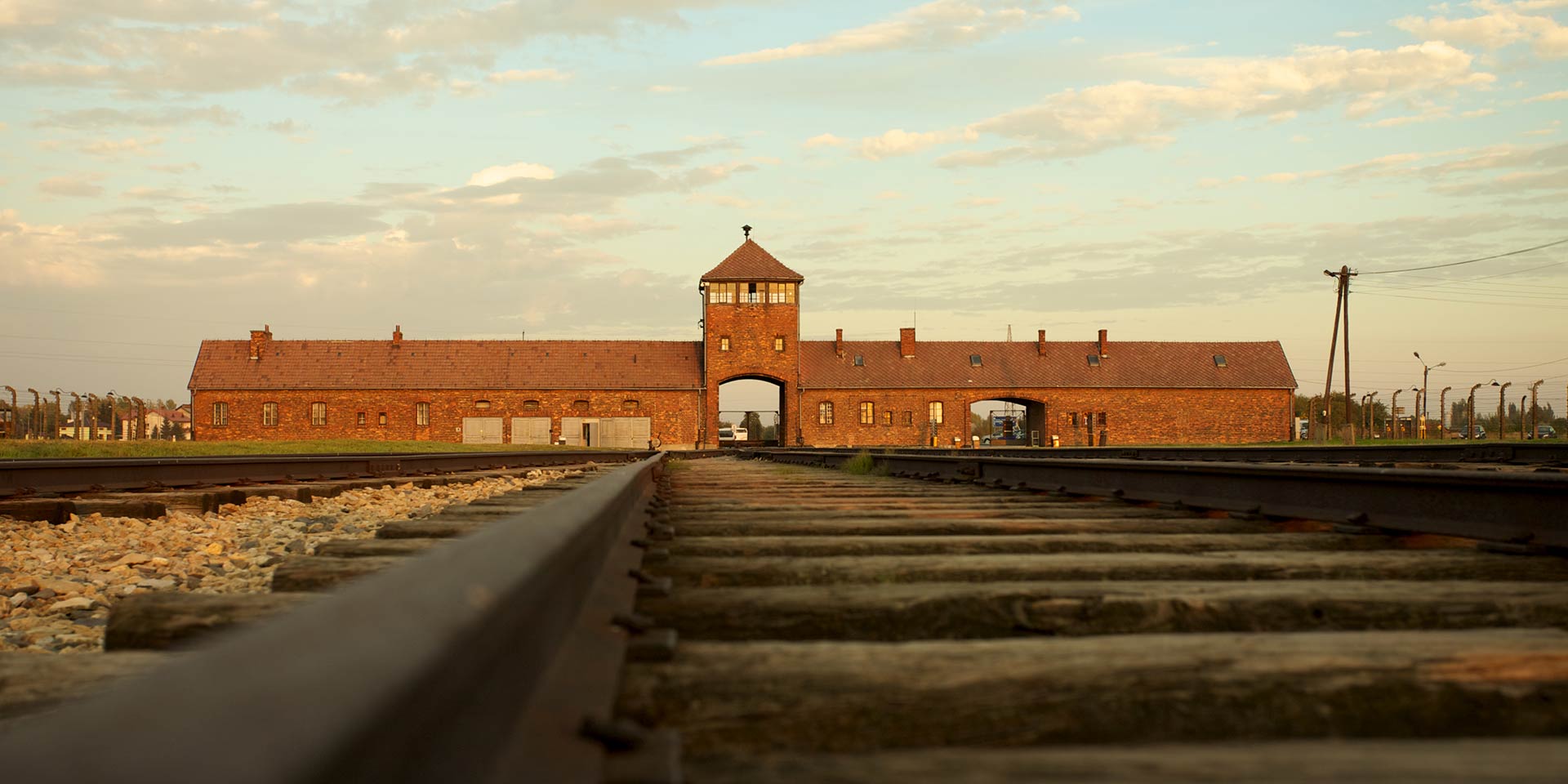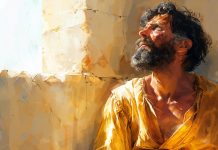The scenario in which God is a judge and His creatures are subject to His judgment culminates, in the Bible, with a happy ending for all lovers of righteousness. But what would be the end of a situation in which God is the accused in a trial instituted by His creatures? Whose ending would be happy?
Elie Wiesel, an American Jew born in Sighetu Marmatiei (Romania, Maramureș County), and a world-renowned personality[1], popularized the theme of God’s trial[2] through the novel The Trial of God (1979). It is a well-known fact that Wiesel was a detainee (number A-7713) in the concentration camp set up by the National Socialist German Workers’ Party in Auschwitz, Poland.
In 1944, at 15 years old, he was transported with his family to the camp, and was eventually released in April 1945, when the American army arrived. His family and relatives had been exterminated—except for two older sisters, who Wiesel would reunite with later. The experience in the camp scarred him for life.
Inspired by Wiesel’s book, British writer Frank Cottrell-Boyce created the play, God on Trial, which in 2008 was transformed into a 90-minute film, produced by Mark Redhead. The movie is modest in set design and props, as imposed by the circumstances, but of great philosophical depth and rhetorical force. Excellently acted by great artists, the film was well-received by critics and spectators. The subject is the legendary ad-hoc Jewish court in Auschwitz, where God is accused of violating His covenant with Israel when He allowed the Nazi genocide.
The film induces horror through the realism of the situation and the strength of the accusations. Some attacks on God will be left out of the discussion, for being simple insults. We can view them as expressions of the soul’s impertinence and the bitterness of the situation, when people feel the need to blame, not so much the human monsters who brought the misfortune, but God who could have done something, but seems to have done nothing.
The need for justice
The presence of evil in a world created by a good and omnipotent God is not only a paradox but a permanent scandal for mortals. The validity of God’s justice in permitting evil is referred to by theologians as “theodicy”. When others suffer, not us, we find it easier to resort to theodicy. However, when the calamity comes upon us, we suddenly become prosecution witnesses or even prosecutors, as if the evil that overwhelms us is happening for the first time in this world.
Still, human desire for justice cannot and must not be suppressed. This demand is present all over the Bible, and the literary motif of the saint who holds God accountable is present in the Holy Scripture: in the Psalms, in the Prophets, and especially in the book of Job. In ancient religions, prayers to the gods sometimes included bitter questioning.
The hidden God and the God of the covenant
The first accusation brought against the divine Defendant is that He is an accomplice to murder. However, the defence argues that, according to Scripture, we must accept the good from God as well as the trouble[3], even if it is not easy for anyone to receive the trouble. Jesus did not sing with joy when he was physically and morally tortured, and He Himself addressed to God that heart-breaking cry (“Why have you forsaken me?”), which shattered the last hope of those who still believed in Him.
The trial in the barracks continues. The major accusation is that the God of Israel broke His covenant, and cheated: “Did God keep His covenant?” The answer comes unanimously: “No.”
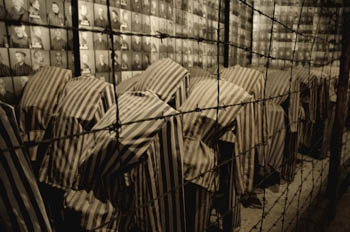
Pointing to this covenant is correct, but the parties involved in the process are ignoring the conditional nature of the covenant. They seem to believe that the covenant requires that the favourite people be pampered by a biased God, regardless of their fidelity.
It seems that they understand fidelity in a superficial, strictly formal, religious, and legalistic sense: we have the right faith, so God must keep His word to us.
Blessings and curses
A Jewish friend of mine once said to me, “After all that has happened to us, let others be the chosen people!” Indeed, Christians believe that God actually took this initiative to replace the synagogue with the church and have a new multi-ethnic and Messianic Israel. Without trying to create any controversy over this theological aspect, it must be said that any church or nation that assumes this identity in relation to God, must assume all the consequences of such a covenant, including the criteria of spiritual identity and the conditioned “curses” that derive from it.
How does the covenant work?
A correct and complete reading of the Law of Moses and the other scriptures shows the profound and spiritual conditions of God’s covenant with Israel, which go far beyond the ritual or ethnic framework.[4] God chose Abraham and his followers not as favourites to be pampered, but as a source of blessing to all nations.[5] Israel was to be the older brother who protected and guided its younger brothers all over the world.[6]
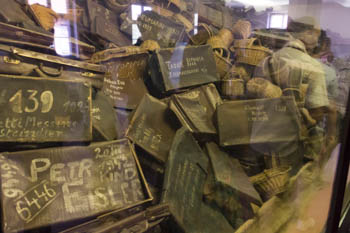
The Israelites were not the only descendants of Abraham, but also were many of the northwestern Arab tribes, especially the Ishmaelites (Nabataeans), Midianites, and Edomites. All of them were circumcised (like the Egyptians[7]) and kept some traditions of wisdom traditions specific to the Abrahamites, although they were polytheists. God excluded them from the covenant made with Abraham because they were estranged from Him.
Thus, only Israel, Abraham’s grandson, inherited the covenant. Still, following the same criteria, the critical line was drawn through the middle of Israel as well. Every promise of God is conditioned.[8]
Decades ago, reading Hosea 13:3 (“they will be… like smoke escaping through a window”), it occurred to me that I had discovered the prophecy that was fulfilled at Auschwitz. However, this prophecy is about the idolatrous tribes of the kingdom of Israel, who were to fall under the blows of Assyria. Their removal from the Promised Land was to be so spectacular that it was compared to the morning dew, the chaff taken by the wind, and the spreading of smoke.
The prophets foretold that these idolaters would return from exile[9], but the recovery of the ten tribes has remained, to this day, the subject of speculation and myth. The prophecy of restoration came to nought because the conditions specified in the covenant were not fulfilled.
Historical excursus
It is necessary to outline a retrospective of the last 2,500 years of Jewish history to understand what happened to the special covenant between God and Israel.
After the post-exile restoration of Judaism, the moral and social problems[10] and the massive apostasy during the Hellenistic persecution[11] persisted. Moreover, there was religious division (Sadducees, Pharisees, Essenes), confusion between Scripture and tradition, and pedantic rabbinic legalism, which not only increased superstition and rules (leading to the emergence of the Talmud) but made this whole religious system a source of salvation by merit.

Jesus Christ (Yeshua from Nazareth, who His believers accepted as the Messiah and God manifest in the flesh) came into conflict with the moral and theological animosities of His people, always choosing what was “written”, as opposed to any other authority. The young Galilean rabbi was a true Jewish reformer, with a typical Protestant attitude, which no traditionalist and authoritarian religious system could forgive. What followed is well known.
Did Israel have anything to do with this? It can be said that the leaders who orchestrated the trial of Jesus were the Sadducee priests. But they were joined by the leaders of the Pharisees in the Sanhedrin, with only two exceptions.
Later, however, many Jews in the country and the diaspora accepted Jesus as the Messiah. The old, traditionalist-legalist and evangelical “Protestant” faiths increasingly came into conflict, until the two sides broke up permanently. Israel continued with the increasingly exclusive and anti-Christian Pharisaic tradition.

After seizing political power and creating a totalitarian system, which they confused with the kingdom of Christ, those who took on being a Christian to save appearances, responded to the old opposition from the Jews by creating a new opposition. The church did the deeds of Pilate and Caiaphas in the name of Christ and St. Peter. The Jews, like the medieval “heretics”, became the convenient explanation for all the misfortunes that befell Christians.
The favourite accusation was that the Jews are God’s murderers and deserve the curse they worked on themselves 2,000 years ago, on Good Friday.[12] Forced baptisms, the Inquisition, expulsions, pogroms, various prohibitions, and everyday exclusion were what Christians reserved for their Jewish brethren, despite the apostolic warning.[13]

After all, when anti-Semitism evolved from the Latin or Byzantine cross, to the entangled cross (the swastika) of a severely altered, Darwinist Protestantism, the most advanced country in Europe reached the pinnacle of “human intelligence”, and the swift and final solution for the Jews: Zyklon B and ovens, soap and smoke factories.
The reasons? Ask today’s anti-Semites
The reasons are always the same: that the Jews are supposedly a Masonic, satanic, nefarious elite, who are to be blamed for all the world’s troubles. Conspiracy is still present in all circles today. Traditional totalitarian Christianity, the ideology of the Islamic State, and Christian or secular nationalism (“Nazism”) are the real nostalgia of those who today bring the ultimate insult to the Jewish people: that the Holocaust did not even happen!
When he repeated what Moses had said, “Love your neighbour as yourself!”, or when he turned the silver rule (“Don’t do unto others what you don’t want done unto you”) into the great golden rule (“Do to others what you would have them do to you”), Jesus also outlined the law according to which, at the end of time, all generations of mortals, Jews or non-Jews, Christians or pagans, for all known or hidden deeds, will be judged.
In God’s defence
Kuhn and our fault
In the God on Trial movie, Kuhn the Jew, the father of one of the judges, rises to defend God. An emotional conflict between two Jewish generations arises. The father is by definition conservative and considers this whole process an aberration and a blasphemy, while the son seems to inherit from Judaism only the ideal of justice, understood in a secular and universal way.
Modern Jewry comprises a huge class of secularized people, many even atheists. In movies, as in life, it cannot be said that secularists are sycophants. There are various reasons why some slip into secularism—sometimes because of religious and moral sensibilities, other times for personal reasons, or reasons related to liberal education.

Kuhn’s attempt to defend God, proving that He has repeatedly allowed misfortunes to come upon Israel, from the Babylonian exile to Masada and the terror of Spain, Russia, and Germany, is met by the judge with the following reply: “It seems to me that the witness is saying that His breach of contract is habitual. Just to clarify the position, are you defending God, or attacking him?”
Continuing his defence, Kuhn resumes the argument in the book of Job, explaining that God has tested the faith of the Jews over time, and that it was precisely because of the steadfastness of the ancestors that the Jewish nation still existed. He saw a divine purpose in this suffering. When asked if the tests were part of the covenant, someone else intervenes, pointing out that even the penalties for sins were provided, which Kuhn confirms.
The judge-son, blamed for leaving Judaism for humanistic-secular ideals, asks him: “So you’re saying all this is my fault? Is that it? God is destroying the whole Jewish people because you are disappointed in me?”
The query raises the question of the limits of collective responsibility. In the Bible, an entire community is sometimes punished because of a criminal group with which it has shown solidarity. However, the Bible also shows God’s willingness to spare a guilty community for the sake of a group of good people. The criterion of collective guilt gets out of control.
Ezra and the unjust or disproportionate punishment
The trial continues. Ezra Shapira of Zamkewitz is called as a witness. When asked, he says that the Jews in his town have not strayed from the Torah, and they love the Scriptures. They have not been spoiled by the rest of the world, all their shops were closed on Saturday, and they had a happy life. But one day, as if out of the blue, “they” came. And they killed the old men, and forced the young men to set them on fire. Thus the judge raises a new, essentially very old question: Why did God let the righteous be killed, and not punish the evil? Why not punish Hitler?
Although difficult to accept, God’s true motives can be many, especially when it comes to the communities involved. God sometimes allows the wicked to continue their existence to test the attitude of society and bring to light the true character of each individual, toward repentance, or eternal damnation. Satan himself has not yet been destroyed by God for similar reasons.

Through such evils, God tests people and proves them guilty or innocent according to His law. Hitler’s accomplices, supporters, and subordinates were tried; the victims were also tried. The Bible promises that God, in His judgment, will pay everyone according to their deeds and intentions. The Nuremberg Trials were a faint shadow of this justice.
The most guilty escaped through the back door. Millions of innocent people have died. But God’s final judgment will put each individual in the right place.
If everything were reduced to this life, nothing would make sense. Unjust suffering, as well as the existence of evil in general, make sense only in the light of judgment and the existence of the future eternal life. All the rewards given by God to Job, after he had passed the test, were only an anticipation of the future reward: eternal life, the resurrection of his children, the indescribable happiness of living in a new world, after the destruction of evil and its consequences.
For the believer, from the perspective of eternity, all this makes sense. Without this perspective, even the greatest happiness turns into tragedy when facing death.
Kuhn continues on another lead, appealing to the examination of consciousness: we must have done something. However, the jurors reject the explanation, saying the sentence must be proportionate to the act. It is true, provided we understand that for the God of the Bible, the severity of a sin can be very different from our assessments. Not all sins are the same. Still, for God, sins that we consider minor (such as selfishness, envy, disinterest in knowing His will, etc.) are far more serious than not fasting, or a Jew marrying a non-Jew.

However, the issue of proportional punishment is reminiscent of the mythology of eternal torment, which appeared in Judaism and Christianity from obscure, extra-biblical sources, along with the philosophy of the natural immortality of the soul (or spirit). Hitler and his SS are insignificant next to a god who would impose an endless punishment for a life of 70 sinful years.
The Bible, carefully studied, is against this mythological scenario. Everyone will pay in proportion to their deeds (except those who regretted, confessed, and forsook them). All the wicked and unrepentant will be completely annihilated, after paying according to their deeds.[14] Yet some fellow sinners, unworthy of eternal life and the new world, will not be punished at all after death, but will also not be resurrected for judgment, because they did not have enough responsibility, or because the life they led was enough punishment.[15]
What about children? The problem of children’s innocence always intervenes in any discussion of this kind. The presence of children in such a context has the role of sensitizing adults, aggravating the divine condemnation of some and contributing to the salvation of others. Children are like angels among us. Their presence at Auschwitz shows that hell didn’t ensue there, but something completely different.
In this world, the innocent suffer along with other innocent people, or because of the guilty, such as in accidents or catastrophes. When such a thing is allowed to happen, God assumes the right responsibility for the fate of all those involved, although He does not hold us accountable at the time or during our life.

Situations similar to the Nazi camp are purgatory for some and an assurance of a place in “hell” for others. Those who died in infancy will be received by God with open arm, at the resurrection of the righteous: the best candidates for immortality.[16] In the most painful situations, God always hides an eternal good for those who are on the side of good.
Punishment as purification. A new argument is then made. Perhaps God left this misfortune as an atoning sacrifice, purifying the chosen people and the world. “It was painful, but it was also beautiful.” Ezra can hardly hold back his tears. It doesn’t matter that tomorrow will be somewhat more beautiful; his mother was killed before his eyes today and his children were taken away.
The argument is rejected: it is not mentioned in the covenant and is unsatisfactory for those involved. The Scripture speaks of one atoning sacrifice: one that most Jews still reject,[17] and most Christians soil with human inventions—when they do not ignore it entirely.[18]
The following question then arises: “If He can do all things, why can He not purify His people without gassing them? How can He be all powerful and just?”
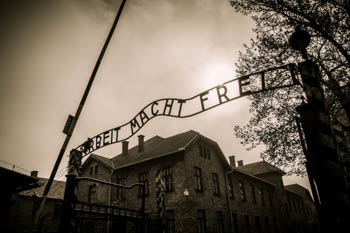
The Holocaust was not God’s plan, but the plan of the devil, Hitler, and his accomplices. They were the ones who did it, they carried it out, even though it didn’t completely work out for them. Still, God, having supreme control over all events, allowed these misfortunes for reasons we can only partially foresee.
God is just and omnipotent at the same time, but He does not always apply justice and omnipotence to people, because He is also patient, wise, prudent, and unwavering. Until the Last Judgment, His justice and patience prevail, and behind them is always God’s saving love.
Lieble and free will
Free will then comes into play as a reason for the many things that happen to human beings. Lieble, a Jew whose three children were taken away by the SS, and was then made to choose one to take back, is brought as a witness. All three of his children had reached out to Lieble, but Lieble could not choose. He says he does not want “free will” from God, he wants his sons. Another says that they do not have free will because there, in the camp, they cannot even choose whether to live or die.

When discussing religion, people often confuse socio-political, physical freedom with moral freedom (free will). Lieble did not have the physical and socio-political freedom to take all his children as he would have wanted, but he had the opportunity to exercise his moral freedom to make the best decision.
The fact that he could not simply choose one and leave the other two desperate may have helped the children to have a better image of their father than they would otherwise have had, if he had chosen just one of them.
Where does all this goodness come from? Lieble continues, taking into account the insult of a comrade (“God should be here being gassed, not us!”) and says: “Maybe that is what is happening here, maybe He is suffering with us!”. This line makes us think of the One who is God incarnate,[19] the Messiah, in whom God suffered as a man among men, incomparably more than any martyr. Jesus identified with people not only by accepting divine punishment in the place of the repentant sinner, but He also stated that His attitude toward His “youngest brethren” was an attitude toward Him,[20] which greatly changes the situation.
Lieble’s unearthly reply is met with the question, “Who needs a God who suffers? We need a God who sends the angel of death to our enemies! Where is He?” A true echo of the words spoken by the unrepentant terrorist who was crucified next to Jesus: “Aren’t you the Messiah? Save yourself and us!” However, the Messiah came first to suffer and call to repentance, in the name of His sacrifice.
The sending of the angel of death among the enemies was left for later. The apocalypse will repeat the plagues of Egypt on a global and aggravated scale. And the enemies of God, not just the external enemies of God’s people, will receive what they deserve.

Lieble then recalls the day of Purim. As he was being shot, the rabbi from Baranowicz shouted the holiday greeting “L’chaim!” (“To life!”, or “Long live!”). Lieble asks, “Where does all this goodness come from?” He admits he doesn’t understand much and doesn’t know much, but for him, it’s enough that God knows them all.
The great philosophical problem of all religions is the existence of evil in the world, as if good were natural. The question “Where does all this goodness come from?”, or “Where do faith and hope in the face of death come from, where does forgiveness come from?” is much more interesting, because it draws attention to a reality superior to the visible one, a reality that has no natural explanation. The presence of goodness in contrast to the ferocity of others is proof that, in a sense, God is there, with the people who suffer.[21]
The physicist’s accusation
After a brief interruption, caused by an intervention of the SS who came to cut their hair and rob the newcomers, the trial resumes and a physicist brings a new set of arguments against the Jewish God, ridiculing the idea that, from all the galaxies of the entire universe, He chose a peripheral, lost planet, and not even the whole planet, but only the Jews. If He loves them so much, why didn’t He populate the universe only with Jews? Why did He have to bring other peoples into the world?
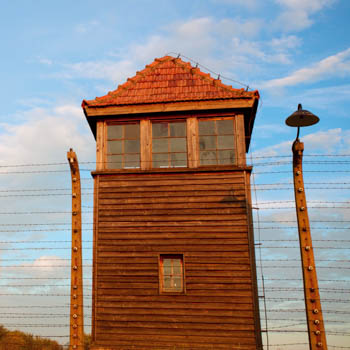
The physicist elaborates a parody of the philosophy of religion, showing that all religions are forms of socio-political manipulation. From polytheism, Jews advanced to monotheism to support a national monarchy. Then came the Christians, universalizing God, and the Romans took their model, extending empire and religion to all peoples. All peoples represent God’s people, not just the Jews. Finally, Hitler came and put an end to the whole story, asserting himself as a god.
In this scenario, which is more sarcastic than pedagogical, the physicist borrows the cynicism of the enemy. The socio-political evolutionism he expresses is not worth commenting on, but the question of why God chose the Jews, although it takes a sarcastic form in the mouth of the physicist, deserves an answer.
The Bible doesn’t say that God chose the Jews out of all the universe, but from among the peoples of the world at a given time. Nor does it say they were chosen to receive overindulgence and exclusive salvation. On the contrary, the privileges of the “firstborn” involve a special responsibility to God and other peoples.[22]
Time is running out. One can already hear the barking of dogs and the roar of SS troops nearby, in the neighbouring barracks. The three judges retreat to deliberate. One of them confesses that all his life he thought he was German, educated his sons in the new Nazi culture and was faithful to Hitler’s policy. One day, however, the Gestapo picked him up because they discovered that he has a Jewish father.
Now he is in the camp, judging the God of the Jews, but knowing nothing of this religion himself. His advice is to give a favourable sentence because God is the only value left. “Don’t let them take your God, too. No matter how foolish and useless it may seem, the covenant is yours. God is your god. Even if He doesn’t exist, keep Him. Let there be something they cannot take away from you…from us.”
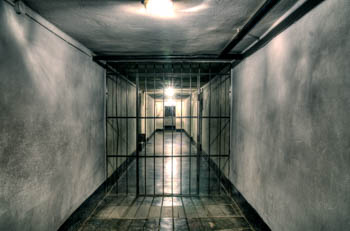
Unexpectedly, this judge has benefited spiritually from this trial. Although he was not intellectually enlightened, he was clearly impressed by the idea that a people might have a special relationship with God and by the faithfulness of some of the Jews detained or mentioned in the witnesses’ testimonies. This fascist, who arrived in the camp for purely genetic reasons, and discovers among the Jews a sense of faith and a change of attitude, provides one of the possible answers to the question of why God allowed the Holocaust.
The surprise accuser
The court is ready to announce the verdict, but Akiba, who has until then remained silent in a corner, explodes with a new indictment against God, this time emphasizing that throughout history, the Jewish God unfairly favoured the Jews and at the same time brought unnecessary disasters on others, thus proving that he is an evil God, undeserving of the admiration of other peoples.
Akiba’s accusations are motivated by a humanistic sensibility but is based on truncated, superficial information, and questionable interpretations. He is wrong to say that the God of the Jews unjustly favoured them. When the Jews became so corrupt that the prophets compared them to the Canaanite people who were doomed to destruction,[23] God’s judgment was brought upon them by the Assyrians and Babylonians, who destroyed the kingdoms of Israel and Judah, slaughtering and deporting their people.
An act such as killing every firstborn in Egypt is mentioned. Akiba is wrong to say that God punished the children of the Egyptians, and not the guilty Pharaoh. It was not about all the children of the Egyptians, but the firstborn of every house, starting with the son of the Pharaoh.[24] He should have rather wondered why God punished the children, and not the parents. Indeed, God is against such a procedure when it comes to justice,[25] which means that this procedure, applied before the great exodus, is based on reasons we are not aware of and do not represent the final application of God’s justice.
We could say that in this way God threatened the Egyptians and targeted their most sensitive spot. However, the final justice of each of those Egyptians, parents and children, will be done at the final judgment, at the resurrection. If God has not yet given the final verdict, it would be wise for us to suspend the verdict on His justice until then.
Akiba says that God was unjust when He did not close the sea before the arrival of the Egyptian army, and waited for them, in order to drown them instead. But why would God perform such a miracle for the enemies of Israel, who were after them to bring them back into slavery? These Egyptians had witnessed the power of the God of Israel for many days, and with this final closing of the curtain, they saw with their own eyes that God had opened the sea to His people.
Entering the land of God to harm His people, despite the miracle they had seen, was signing their own death warrant, committing the capital sin. They deserved their fate.
Akiba also talks about the extermination of the Canaanites. The accuser refers to the “merciless” destruction of the peoples of Canaan. We should first note that the Canaanite people were guilty before God, and that He had already begun the offensive against them when He destroyed the rich cities of the Jordan plain, where abuse and perversion flourished.[26] God had given the Canaanites an example of pure living through the ancestors of Israel, who had lived as nomads on that land and were a good example of a relationship with God.[27]
Most of all, the Canaanites were aware of all the miracles that had accompanied Israel from Egypt to Canaan, they believed in them and feared them,[28] but they still did not repent, not even out of fear, and allied against Israel.
God decided to destroy the Canaanites not because they were the only pagans in the ancient world. Disgusting religious and moral issues existed everywhere, but the Canaanites were more to blame for the popularity of these evils because they had better opportunities to correct them than others. Their presence in the geographical and commercial centre of the Middle East, with wide influence at sea and on land, made their existence a moral danger to mankind.[29] They practised all forms of incest, uncleanness, adultery, sacrificing Moloch’s own children by burning, homosexuality, bestiality, white and black magic, divination, and consulting the spirits of the dead.[30]
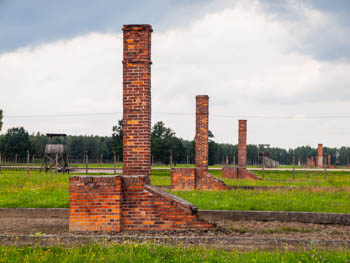
God had promised all supernatural help for the disinheritance, expulsion, or destruction of those tribes.[31] The sentence of complete extermination of the Canaanites was given because they would not recognize the true God, but maintained their cursed culture, opposed Israel, and were a permanent danger. God wanted to avoid Israel’s contact with the Canaanite religion, a motif repeated in the books of Moses. The few Canaanites who sided with Israel, even those who did so dishonestly, were spared.[32] Also, many tribes remained untouched because the Jews had been lazy about annihilating or expelling them.
Akiba also criticizes Yahweh Adonai because, instead of punishing David for adultery and murder, he struck David and Bathsheba’s child, who died a week later.[33] Any normal father can understand that the death of his own child is a heavier punishment than his own death.
By law, David deserved the death penalty for both of his sins.[34] As king, he was not above the law, and his guilt was even greater. However, God decided to spare his life and preserve his royal dignity for the following reasons: (1) David acknowledged and regretted his sins like no other,[35] and God forgave him; (2) God forgives those sentenced to death who repent, without necessarily sparing them of earthly punishment.[36] That is why the sparing of David’s life cannot be explained as divine forgiveness, but not as proof of favouritism either.
After all, by sparing him, God allowed him to bear other consequences of his sin: to live and be a helpless witness to the consequences of his sins, paid by his children. Four sons were to die, three of them dramatically during his lifetime: the infant who was the fruit of sin; Amnon, the crown prince, an incestuous rapist; Absalom, the next prince, the proud political rebel, unscrupulous, incestuous, and ready to kill his father; and Adonia, the usurping prince and dangerous political opponent of King Solomon.
David would rather have died himself instead of his children, whether they were guilty or innocent.[37] Still, God did not listen to his desire. The newborn who died was not punished instead of David, but his death was David’s punishment. In this world, even innocent babies often suffer, and sometimes die for various reasons, not being aware of what is happening to them. Suffering is not a punishment for them and, for the most part, not even for their parents.
Of all these four sons of David who died, the anonymous newborn, who probably did not even make it to his circumcision, is the only one saved for eternity, because he was innocent. The fact that a child is born of sin, no matter how serious, does not affect their status before God. In the genealogy of David and Jesus Christ, there are two people born of incest.
Solomon too, God’s chosen, was also to be born of David and Bathsheba. (At what point did this new marriage of David become legitimate before God?) The child, then, did not die because he was the fruit of a sinful union, nor was he punished in place of his parents. In a sense, the baby foreshadowed the Messiah, the “Son of David”, who would come and take upon Himself the sins of David and the whole world.
Akiba claims that God is arbitrary. He continues his diatribe against Adonai, comparing themselves being selected to be gassed to the Moabites, who had been made to lie down in line by David, who chose one to live and two to die. “We have become the Moabites”, says Akiba.
The example of the Moabite prisoners’ decimation is troublesome because the biblical text is extremely short,[38] without explanation, and somewhat strange—it was not David’s habit to behave like that. If we are to admit, for the sake of argument, that David committed such a great injustice, Akiba’s argument is still unacceptable, for two reasons.
Firstly, it is not written that this collective execution was ordered by God, and secondly, regardless of David’s guilt, the Auschwitz sorting could not be a pedagogical punishment for David, nor a penalty to the Jews, delayed by three millennia. Since there is not enough historical or biblical data to understand this incident, nor is it mentioned in the parallel chronicles, it is best not to comment on it.
Approaching the end, Akiba repeats that Adonai is not a good God, that he was never good, but only “on our side”, that is, “God with us”. Referring to the global extermination of the antediluvian civilization, Akiba angrily asks “What have they done to deserve annihilation? What could they have done to deserve such wholesale slaughter?”
The Torah describes the huge guilt of that generation shockingly: corruption (depravity and moral corruption) and violence were widespread.[39]
The antediluvians were truly superhuman, a superior race, with a longevity ten times longer than the current average. God could no longer bear the spectacle of their daily wickedness. In order to save the only family that was still obedient to God, the Creator decided to destroy that beautiful and blessed world, to drastically lower life expectancy, and thus give the human species a new chance at salvation. The destruction of the entire world in that prehistoric era is proof that God’s wrath against wickedness and disobedience must be taken seriously.[40]
Akiba then talks about “Abraham’s holocaust”. The last example, with which Akiba ends his diatribe is, indeed, very provocative: When God asked Abraham to sacrifice his son, the old man should have stopped God, and not allowed Him to give such a command.
Regarding the command given to Abraham to sacrifice his son, Akiba’s reasoning should be taken seriously. I suspect you would all respond like me in this case: “Lord, don’t be upset! If you find me guilty, punish me, but do not command me to do the thing that You have absolutely forbidden. If you ask me this, I begin to wonder whose voice speaks to me, even if it sounds like Your voice!”
In reality, however, in Abraham’s time, no one had this kind of worry. The gods were expected to be strong, but not good or merciful. Abraham had been removed by God from an initially faithful nation, who had fallen into idolatry. Human sacrifices were present in all peoples. Canaanite neighbours often sacrificed their children to their gods, and the Torah of Moses and the Prophets, who categorically forbid such a gesture, had not yet appeared.[41]
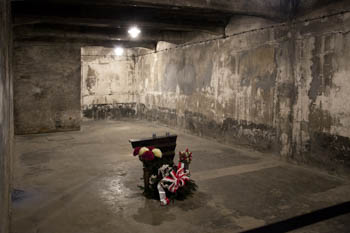
This explains why God was able to test Abraham in this strange and dramatic way. However, the test was neither trying to violate Abraham’s conscience, nor to teach us that any revelation from God must be accepted, however contradictory and immoral. The test was to verify the faith of Abraham before the heavenly beings. Because God had promised him that Isaac would have many heirs, and Isaac was still a teenager and had no children, Abraham’s obedience to God was being tested, along with his faith in God’s promise that Isaac would give him descendants.
The old man emerged victorious from this test because, although he knew he would make of Isaac a holocaust, he was convinced that God would raise his son even from the ashes. That is why he promised the servants that he would return with the boy.[42] The success of this expedition of faith was also due to Abraham’s ability to persuade his son when, on the hill of Moriah, he revealed God’s decision to Isaac. The young man obeyed, accepting his father’s faith and God’s promise. Adonai was extremely pleased with the success of this experience of trust and devout obedience.
The fact that God’s tests are sometimes very difficult, or that they sometimes allow terrible things to happen to us, does not mean that God is evil. We can’t think of Him as a child who dislikes the man with the syringe. Questions such as those asked by Akiba are common, but an honest and patient study of the Scriptures gives us brilliant or at least satisfactory answers. Until the final judgment, however, some of them will still be left without a satisfactory answer. Should we abandon God because He does not give us all the explanations now?
The verdict
Thanks to Sir Antony Sher’s excellent performance, Akiba is convincing. However, it seems easier to passionately play the devil’s advocate rather than God’s advocate. Akiba leaves everyone speechless, and the trial ends tacitly against God.
However, someone else will have the final say in this trial. The doctor comes in and reads out the numbers of those detainees destined for gassing. Kuhn demands to be taken in place of his son, who is “not ready”. While the list is being read and the terrified detainees still hope that it may have been a mistake, because some are too young, and can still work, an extraordinary scene takes place. The Jew who had been most angry with God from the beginning hears his number being called. Desperate and trembling with tears, he turns to Akiba: “What do we do now? Now God’s guilty! What do we do now?”
Akiba, who is emotional as well, gives an unexpected response: “Now, now we pray!” And, together with those around him, he prays, reciting Psalm 90 (“Lord, you have been our dwelling place throughout all generations. Before the mountains were born or you brought forth the whole world, from everlasting to everlasting you are God.”)
And while, one by one, the detainees line up at the call of death, it is further recited: “You turn people back to dust, saying, ‘Return to dust, you mortals’… like the new grass of the morning: In the morning it springs up new, but by evening it is dry and withered… If only we knew the power of your anger! Your wrath is as great as the fear that is your due.”
In the last scene, from the gas chamber, the detainees are still reciting the psalm: “Make us glad for as many days as you have afflicted us, for as many years as we have seen trouble.”
This is the masterful way the trial of the biblical God of the Jews ends, started and completed in the camp. The real verdict is “Now we pray.” The rest is a lot of speculative philosophy, theology, and interesting rhetoric, but nothing conclusive. Now we pray. This means the implicit recognition of our inadequacy on every level: worship, capitulation, the replacement of our indictment and inquisitorial rhetoric with the spirit of repentance, reconciliation with God, the willingness to get to know Him more, and to remain faithful to Him until the end, and at all costs.












